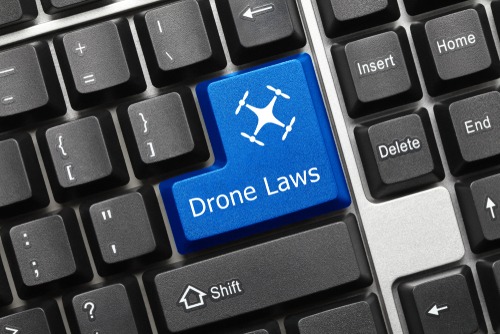
The rapid introduction and expansion of unmanned aircraft systems (UAS), or drones, into daily life has created a host of additional safety and privacy concerns as well, and this week those concerns prompted the Biden administration to introduce the first Domestic Counter-Unmanned Aircraft Systems National Action Plan.
This whole-of-government approach to the issue is built on where protections against criminal use of drones could be expanded, who can take action against them, and how these regulations could be undertaken lawfully.
“The Plan seeks to achieve this legitimate expansion while safeguarding the airspace, communications spectrums, individual privacy, civil liberties, and civil rights,” the White House said in a statement. “To achieve this balance, the Administration is calling on Congress to adopt legislation to close critical gaps in existing law and policy that currently impede government and law enforcement from protecting the American people and our vital security interests.”
UAS are frequently used for recreation, research, commerce, and military needs, from deliveries to surveillance and bombing runs. This has prompted increased concern from governmental authorities, which fear its misuse. As such, the White House proposed eight recommendations:
- Working with Congress on legislation to reauthorize and expand counter-UAS authorities for various federal departments and to grant greater authority for state, local, territorial and Tribal law enforcement agencies, as well as critical infrastructure owners and operators. A new federally-sponsored pilot program would be ushered in under this effort.
- Separate legislation to create a criminal statute laying out clear standards for legal and illegal uses, as well as penalties, to deter UAS-related crimes
- A federally approved list of U.S. government authorized detection equipment to help guide UAS detection system purchases
- Oversight and authorization mechanisms to help critical infrastructure owners and operators purchase counter-UAS equipment for authorized federal entities or SLTT law enforcement agencies
- A National Counter-UAS Training Center
- A federal database for tracking domestic UAS incidents
- Mechanisms to coordinate research, development, testing, and evaluation of UAS detection and mitigation technology
- International cooperation in developing counter-UAS technologies and systems
“The department is grateful to the Administration for recognizing the increasing risk and for involving federal departments and agencies in crafting a thoughtful approach,” the Department of Justice said in a separate statement. “The Counter-UAS plan is a whole-of-government measured proposal that builds off existing authorities to address the threat that simultaneously protects privacy and civil liberties of the American people, the safety of the national airspace and the communications spectrum.”
Both the White House and the DOJ expect to reach out to Congress and other governmental, private, and law enforcement stakeholders in the days ahead to hammer out the details of a plan and craft a legislative proposal.




